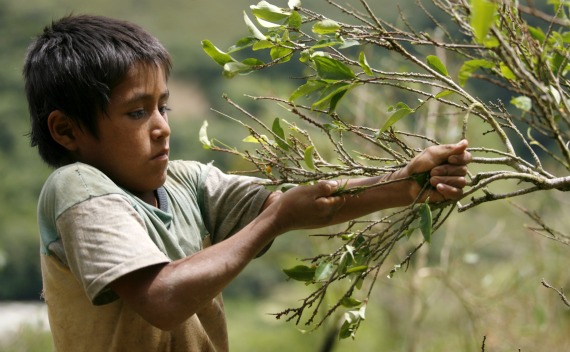Will Peru Take on the Narco-Traffickers?
More on:

As Peruvian President Elect Ollanta Humala prepares to take office at the end of the month, the worries focus on his economic policies. Will he be another Chavez, nationalizing industries, or a Lula, balancing market friendly macroeconomic policies with broader social programs? The fears have led to a rollercoaster month in the stock market, which sank a record-breaking 12.5 percent the day after Humala’s election, only to bounce back one day later. Rumors of Humala’s plans for the mining industry, private pension funds, and even the free trade agreement with Peru and Colombia abound.
Receiving less attention is how Humala will manage security issues— and particularly narco-trafficking. According to this year’s United Nations Office on Drugs and Crime (UNODC) World Drug Report, Peru is now virtually tied with Colombia as the largest supplier of cocaine in the world. And with skyrocketing cultivation come the more nefarious elements of organized crime. Evidence suggests Mexican cartels are working with local criminal groups and some say moving into Peru themselves, spurring a precipitous rise in drug-related violence in recent years.
Throughout the campaign Humala promised voters a tough on crime, or ‘mano dura,’ approach. He talked about centralizing anti-drug strategies into one agency — a High Commission on Drugs. More controversially, he supported a role for local militias in the fight against narco-traffickers. Recently he met with Colombian President Juan Manuel Santos to talk about bilateral counternarcotics cooperation.
On the other hand, the former lieutenant colonel maintains a close political relationship with Peru’s community of coca growers, and his Nationalist Party incorporates prominent leaders of the so-called ‘cocalero’ movement within its ranks. Humala has repeatedly pledged to respect the rights of peasant cultivators of coca leaf, and has opposed forced coca eradication. During the campaign he moderated his original platform, which eschewed a drug policy “subordinated to external interests”, and called for greater collaboration between the U.S. and Peru on security issues. But, Humala’s party recently announced its desire to appoint a representative of the coca grower’s movement to the National Commission for the Development of Life without Drugs (Devida) – the government’s principal anti-drug agency -- in an effort to, as one official put it, establish an “open dialogue” with this community.
Humala owes his election to Peru’s rural poor, and it is this constituency that stands to lose the most (at least in the short to medium term) from a hard-line counternarcotics program. Most of Peru’s coca farmers are entirely dependent on the crop as their only source of sustainable income, even as they remain poor. For example, in the Ene-Apurimac valley (responsible for nearly a third of Peru’s coca cultivation), roughly 80% of the population is poor and half live in conditions of extreme poverty.
Though successful anti-poverty and anti-drug campaigns are not mutually exclusive, achieving both sets of aims will be no easy feat for Peru’s incoming president. As Wall Street waits to see how the recent elections will affect Peru’s economic trajectory, domestic and international communities should also be looking toward Humala’s initial security programs, and how he will balance the fight against drugs with his long-standing commitment to improving the lot of Peru’s poor.
More on:
 Online Store
Online Store